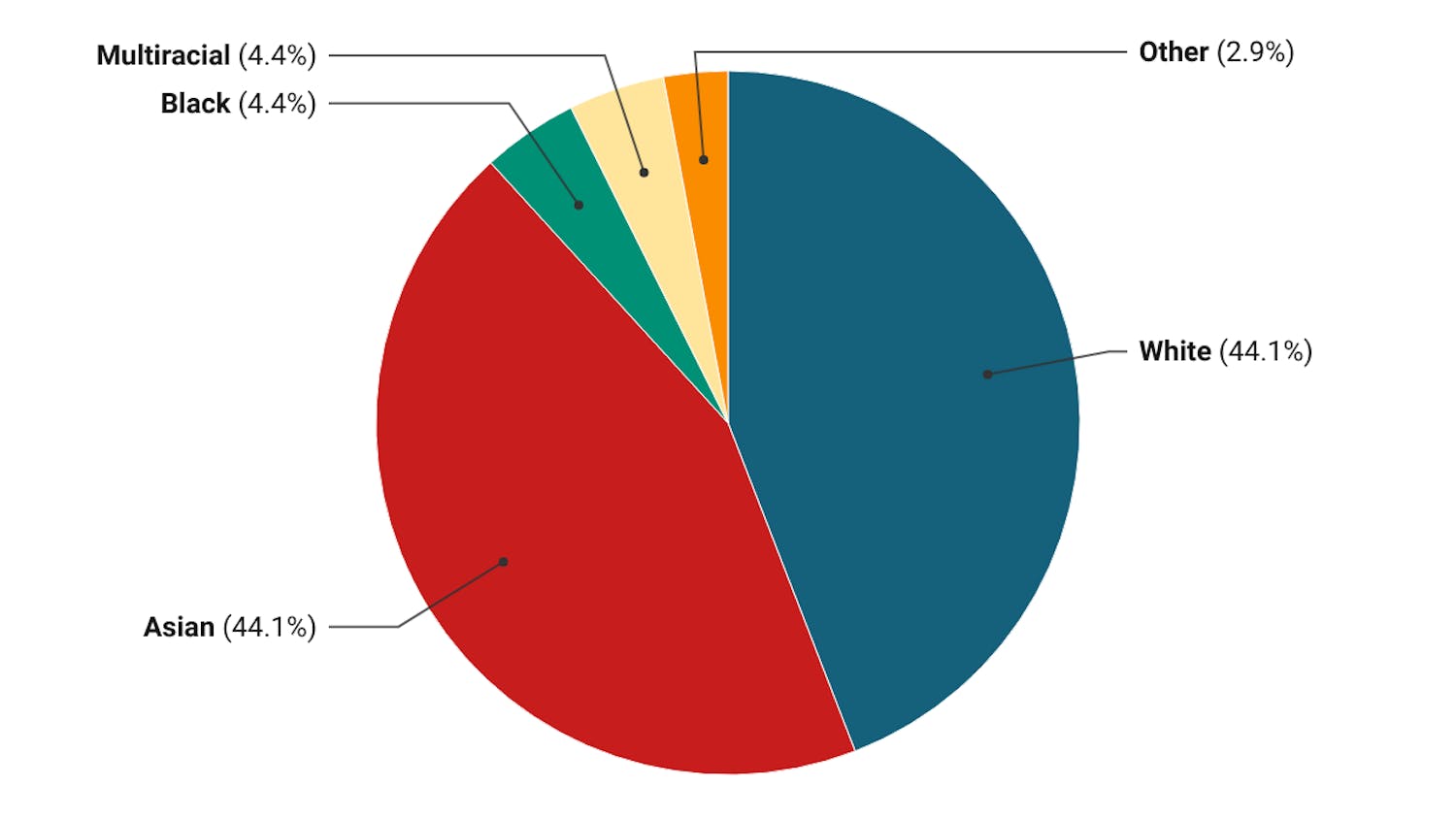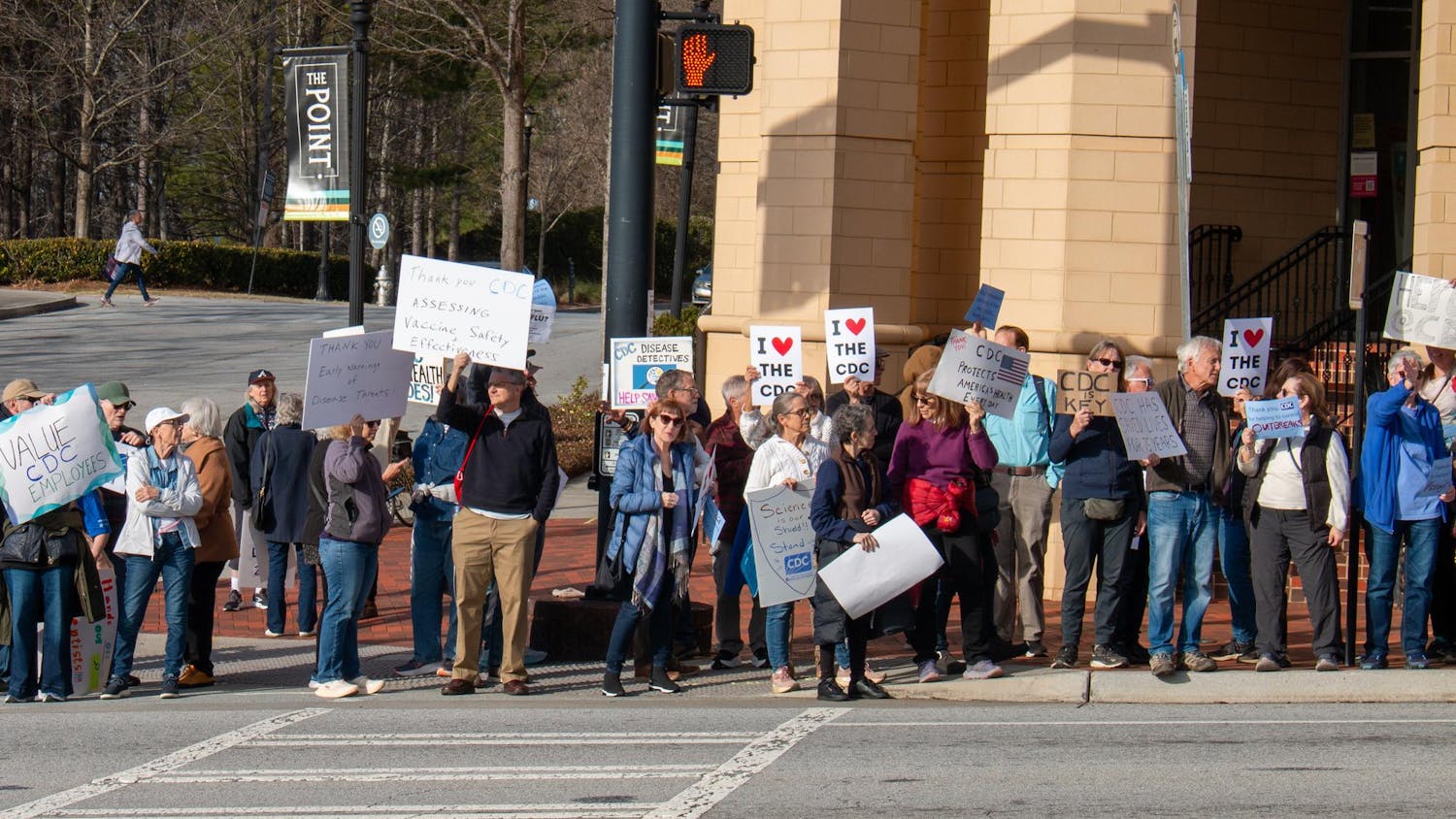
On any given day, if you stroll down from Emory University toward the main entrance of the Center for Disease Control and Prevention (CDC), you inevitably run into a group of anti-vax protesters. Usually, you’ll see a protester blaming the Biden administration and the CDC for promoting the vaccine, comparing this public health intervention to genocide.
A few protesters flashing signs and playing music might seem relatively harmless, but they represent a much larger opposition to COVID-19 regulation. They are a stark reminder that we are not only still entangled in this de facto war against SARS-CoV-2 virus, but we are also not winning it. And this is true both for the United States and the world. The current pandemic wave in the U.S. is still showing very high numbers of newly infected, hospitalized and the dead from COVID-19, even though the dominant Omicron variant seems milder in terms of symptoms for vaccinated and boostered individuals. And the situation is still pervasive in Europe, and even in Australia and many mostly COVID free regions and countries. Scientists keep talking about the next variant to this deadly equation.
Political leaders worldwide are taking the populist route in regards to the pandemic. From Russia’s Vladimir Putin, Turkey’s Recep Erdogan, India’s Modi, previous U.S. administrators under Donald Trump, many heads of state will say that yes, while COVID is important, economic development must remain a priority, and they would use the pandemic to further strengthen their positions. Even with record numbers of infections, the response was back to business as usual and as soon as possible as seen in the U.S. Furthermore, populist leaders have shifted blame for the pandemic to foreign countries and immigrants. They have denied evidence and shown contempt for institutions that generate it, and portrayed themselves as the voice of the common people against an out-of-touch scientific elite. By doing that, they are giving the public what they want — a chance to slowly but surely put all coronavirus related issues aside. The people just want to focus on the illusion of a “normal” life in the post-COVID era, but we are simply not nearly there. By complying with the sentiments of pandemic saturation, the politicians are leaving the scientists, researchers and public health experts to look like doomsday prophets when they talk about this grave danger.
Over the past months, apart from a few weeks of Omicron excitement, we have become so desensitized, numb and coldhearted to the number of infected, hospitalized and deceased coronavirus victims that many of us simply stopped taking this pandemic seriously. However, we simply cannot afford such apathy when potentially more deadly variants may be looming over us like the proverbial sword of Damocles. Compared to the original SARS-CoV-2 virus, some of them spread faster like Omicron, some can cause more deaths and hospitalizations like Delta. The greatest threat is of course the possibility that the vaccines we have simply won’t work on some future variant or, even worse, will result in a completely new strain of the pandemic coronavirus.
The responsibility may lie in government and its relative failure in imposing mandates. But it is mostly about us, isn’t it? We, the people, and all of the people, must once and for all accept that this will not go away. It won’t be gone, ever. Thus, we probably have to take even more boosters or new vaccines for novel strains in the future, and that it is this new pandemic culture, and old pride and love for your country and fellow man that should drive the pandemic response from now on.
We somehow don’t care about the 2,000 daily deaths in the U.S. alone, a completely unacceptable figure for any other preventable disease. Especially a disease like COVID-19 that, in theory, can be deterred with tools already available. Isolate the sick and vaccinate everyone, and we’re done here, right? But that ship sailed long ago, when we failed to do either, both in the U.S. and on a global scale. And the pandemic simply is not done with us, while the numbers keep piling up. Numbers of body bags, that is.
Recently, the death toll from COVID-19 surpassed 850,000 victims, which is the maximum number of newest estimates of casualties of the Civil War. So far, the deadliest event in U.S. history. And just like that, the still raging pandemic took that particular infamous number one spot in history. And if anyone even noticed this, they just didn’t care.
Comparisons between Civil War and coronavirus pandemic run deep. More than two thirds of Civil War victims, including tens of thousands of civilians, died from diseases like diphtheria and typhus rather than direct combat. Similar to the countless disabled veterans that lost their limbs in that war, the uneven response strategies regarding COVID-19 will also leave many millions more unseen victims that will suffer from permanently damaged health and reduced quality of life.
Atlanta definitely remembers the Civil War, being the place of its critical battles and place where so many died of the aforementioned diseases. But also, with CDC and Emory, this city is the public health capital of the world today, which is setting an example for so many other nations to follow. And in the face of the pandemic, we need peace and unity, harmony between people no matter the color of their skin, or their political or religious affiliation. Because the virus doesn’t care about any of that. And this unity actually exists in this place that was so divided before. We just need to extend it to the COVID-19 too.
This country can’t afford any more unnecessary losses. The young, educated people studying at Emory are being led by public health champions to show us how. Whether it revolves around participating in research, task forces and development of new therapeutic and diagnostic options, or just communicating within your social networks, each of us have a role in stopping COVID-19. It may not seem that way, but right now it is more critical than ever. This is the decisive battle.
As a public health official and a vaccine promoter in Serbia, I sometimes feel I could scream when I think of all the people that simply didn’t have to die. But then I remember that this is not over. Neither I nor anyone else working in public health gets to be fed up or fainthearted regarding COVID-19. We’ll carry on, for as long as it takes. Something as small as reassuring someone to keep wearing a mask or for one single person to take the vaccine can mean the difference between life and death — and that is all that matters.
Pavle Zelic is a Humphrey Fellow from Serbia.








